10. Mister Lonely (2007)
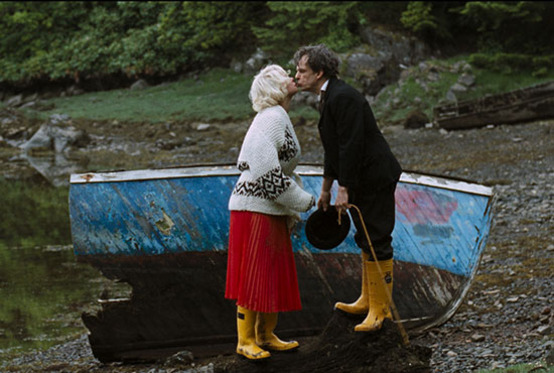
While it doesn’t quite reach the exuberance and experimentation of his liquidly drug-induced narrative masterwork Spring Breakers, Harmony Korine’s Mister Lonely is still a wonderfully (and predictably) weird character study that only he could deliver.
A Michael Jackson impersonator meets a Marilyn Monroe impersonator and is immediately smitten. He then follows her to a commune in Scotland, where they live with a group of other misfit celebrity impersonators to become the family they’ve all lacked. Somewhere in there, Werner Herzog is ecstatically screaming at nuns to parachute out of an airplane.
As is the case with most of Korine’s work as a writer/director, trying to explain Mister Lonely in words is like trying to paint the color of taste. It’s best to experience them as they are meant to be experienced: as films and with an audience of open-mouthed people either so entranced by what they’re seeing that they can’t move or so perplexed that they’re about to walk out. Either reaction would probably suit the mind behind Mister Lonely just fine.
9. Big Fan (2009)
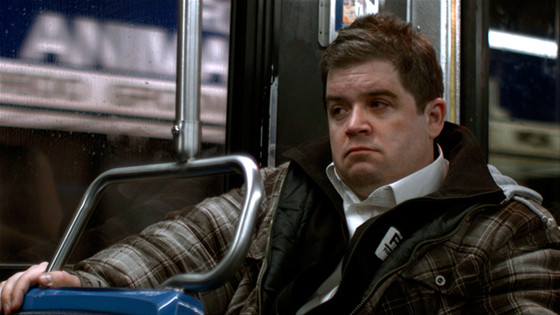
It took a strange, brilliant, darkly funny, and often uncomfortable film like Big Fan to finally showcase the strange, brilliant, darkly funny, and often uncomfortable humor of Patton Oswalt. Something of a modern-day King of Comedy set in the world of sports, Oswalt stars as an obsessed football fan who can’t put his life back together after being beaten up by his favorite New York Giants player. Things get more and more uncomfortable as Oswalt’s grip on reality grows looser, and the line between super fandom and delusion grows fainter.
Oswalt, always affable and funny in the supporting “best friend” roles he usually receives, finally gets a chance to explore some darker, more painful emotions in Big Fan. He excels in the role of an overgrown man-child who, while not entirely likable, is always believable and, even at his most disturbing and obsessed, always sympathetic.
Patton Oswalt, who has turned cynicism and sarcasm into high art with his wonderfully geeky and endearingly sardonic style of stand up comedy, gives a surprisingly vulnerable portrayal of a lost soul comforting itself through the total escape from reality that is hyper-fandom.
8. Joe (2014)
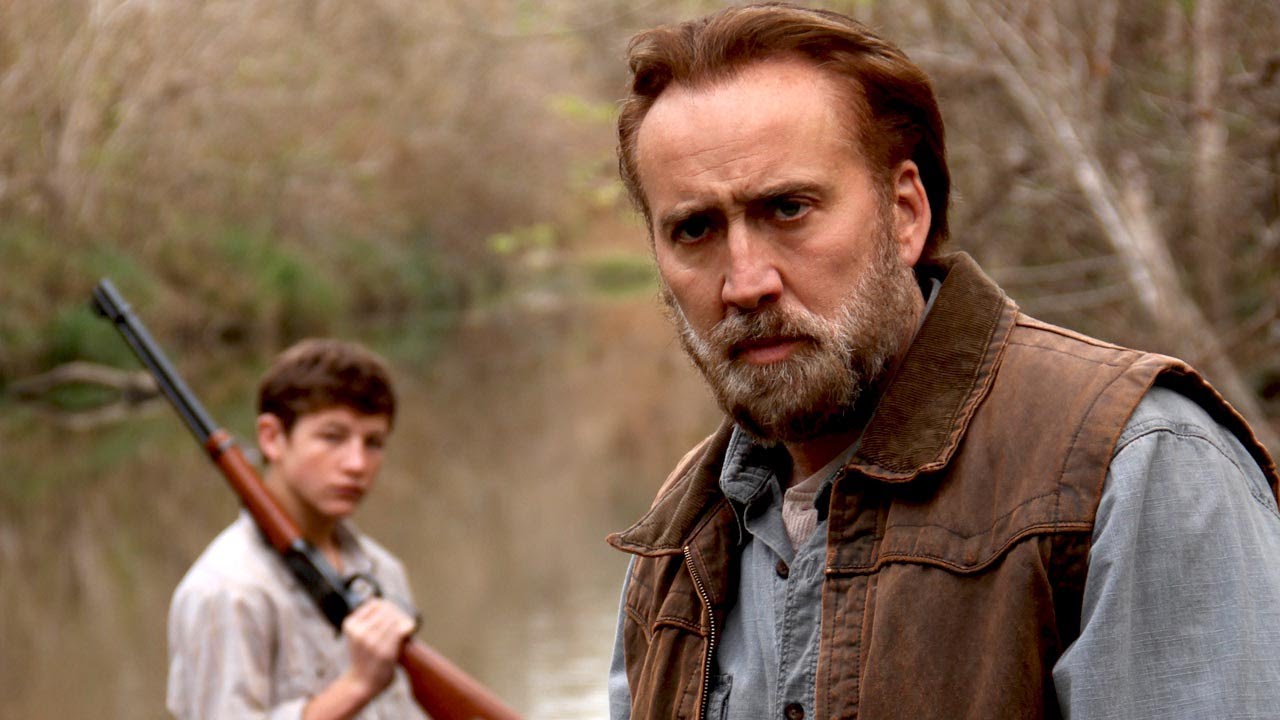
You may think that the Nicolas Cage we all know and love (Raising Arizona, Wild At Heart, Leaving Las Vegas, etc.) is currently lost in a sea of straight-to-video generic action releases. For the most part, you are correct. But we also cannot forget he still comes to port from time to time to remind us of the fact that he is still, indeed, the one and only Nicolas Cage.
Joe is a simple story set in a small town about loner with a past who befriends a neglected teenage boy (Tye Sheridan) and is inevitably forced to take on the role of his protector. The film is easily Cage’s best work since Bad Lieutenant: Port Call of New Orleans (though far less unhinged).
In Joe, we see a continuation of the thought and creativity that filled Cage’s earlier work, only it’s now more internalized, mature, and real. Guided by David Gordon Green’s unique and expert direction, Cage creates a conflicted and fascinating character who is running from his own nature but is ultimately unable to avoid it. Hopefully, it won’t take so long for Cage to get a role like Joe that he can really sink his teeth into next time around…
7. The Walker (2007)
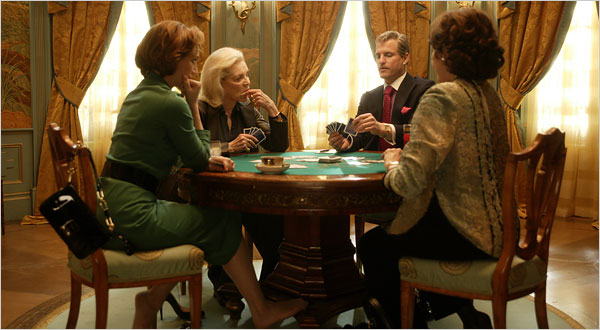
Paul Schrader, the legendary screenwriter behind some of Martin Scorsese’s best films, has a somewhat lesser-known and appreciated career as a director (usually of his own material). His best films (Blue Collar, Affliction, and Light Sleeper are at the top) tend to be character-driven dramas about criminals or outcasts on the fringe of society. The Walker, a murder mystery set in Washington, D.C, centers around a man who accompanies and entertains the wives of the rich and elite “important” men of the city when they’re too preoccupied to do it themselves.
As with most of Schrader’s work, the film doesn’t adhere to any particular style, and is (seemingly) effortlessly and simply told in way that highlights the story, characters, and performances. His scripts are always rich and meaty enough that they attract great acting talent. The Walker is no exception to this, featuring an outstanding ensemble cast that includes Kristen Scott Thomas, Lauren Bacall, Lily Tomlin, Marcia Gay Harden, Willem Dafoe, Ned Beatty, and the always-brilliant Woody Harrelson in the title role.
Harrelson’s likability and skill carry the film, and it’s hard to imagine getting nearly as involved in the character with any other actor playing it. He is charming, intelligent, and well-spoken enough to carry his way through the banal banter of the upper class, but also possesses a wisdom and darkness that only society’s downtrodden can fully understand. It takes an actor as outwardly charismatic and seamlessly, invisibly complicated as Harrelson to pull off a performance as detailed and real as the one he gives in The Walker.
6. The Killer Inside Me (2010)

Jim Thompson’s hyper-noir sensibilities, hard boiled dialogue, and pitch black worldview made for some fantastic and harsh pulp fiction back in the writer’s heyday. It’s not too hard to understand why we haven’t seen more adaptations of his bleaker-than-bleak work, however, because the more faithful they are, the more likely they are to turn off mainstream audiences.
The Grifters, based on a Thompson novel and released in 1990, was initially a huge critical success starring John Cusack, Angelica Huston, and Annette Bening that quickly went on to be overall forgotten by mass audiences, though still highly respected by a select few.
That film is about the relationship between a mother and son con artist and his highly vindictive girlfriend who gets in the way. It was especially bleak, featured incestuous undertones, and ended with such a jolt of unhappiness and amorality that it pretty much left audiences rushing out of theatres to cleanse themselves of the emotional filth they accrued while viewing such hard-core darkness.
With all due respect to that masterpiece of perfection, Michael Winterbottom’s adaptation of Thompson’s The Killer Inside Me, while retaining all the primary elements of its predecessor, is far more severe, brutal, scathing, and unrelentingly bleak than a kid-friendly family romp (in comparison, of course) like The Grifters could ever be.
Casey Affleck stars as a small-town sheriff whose affability all-too-easily masks the fact that he is a brutal and psychotic murderer who primarily targets the unlucky women who fall in love him. After that rom-com set-up, things get REALLY dark.
The Killer Inside Me is a painful, unrelenting, and uncompromising film. It’s as unsettling as it is compulsively watchable, and its success relies as much on its audacious and assured filmmaking as it does on Affleck’s performance.
Affleck doesn’t play his extreme sicko role like a villain, he plays it like a detached spectator who watches himself squirm out of being caught for his atrocities from above (and only appears to be in his own skin when he’s actually committing them). He can’t help what he is or what he does, and he’s oddly at peace with accepting it. The maturity, skill, and restraint it took from Affleck to create such an ultimately terrifying role is as shocking and impressive as the film itself.
4,5. Much Ado About Nothing (2012), and In Your Eyes (2014)

Joss Whedon knows who he is as a writer and a filmmaker. He also understands that working in Hollywood is working in a business, and that not every project which will steal his time and energy can be one hundred percent his baby. That is why the creative genius behind Buffy, The Vampire Slayer, Firefly, and Dr. Horrible’s Sing-Along Blog (to name a few), has been putting all his stock in Marvel lately. In case you just woke up from a coma, his major efforts of the last few years have been 2012’s The Avengers and 2015’s sequel, The Avengers: The Age of Ultron.
While both these films are fully entertaining and have touches here and there that could be considered “Whedonesque”, there is something sadly impersonal and slightly beneath him to these two major blockbusters.
However, since one can presume Whedon has a soul, he has managed to keep it alive and strong with two much smaller films: In Your Eyes (which he wrote and produced, but handed directing duties off to the very capable Brin Hill) and his modern-day Shakespeare adaption of Much Ado About Nothing (which Whedon reportedly directed on breaks while filming the first Avengers). Both these films will have hard-core Whedon fans rejoicing in the streets. They are fantastic returns to form and are welcome entries amongst the best (and most original) of Whedon’s work.
Much Ado is cleverly and beautifully made (in fantastic black and white digital photography by Jay Hunter) and features an excellent cast of Whedon’s favorites from his television past: Alexis Denisof, Nathan Fillion, Amy Acker, Sean Maher, and Tom Lenk just to name a few. It’s good to see a group of underrated actors who should have become movie stars long ago get the quality of roles they’ve deserved for years, and the love Whedon has for them (and for Shakespeare) is what makes the film as special as it is.
In Your Eyes is a fantastic and intimate science fiction romance about a cross- country relationship between two lovable losers (great performances by Zoe Kazan and Michael Stahl-David) who literally can’t get out of each other’s heads. An interesting premise, the film never gets ahead of itself or sells out to focus on the potential high concept aspects of the story. It remains small, intimate, and endearingly focused on its two main characters throughout.
In spite of being known for creating some of the most influential science fiction and fantasy works of the last twenty years, Whedon’s longest-running fans don’t keep coming back to him for spectacle or action. They come back for the quiet moments in between that focus on character and relationships. In the end, the best moments in Whedon’s work never have anything to do with special effects, and almost always have everything to do with the smallest and most human interactions portrayed by his extremely gifted selection of actors.
3. Afternoon Delight (2013)
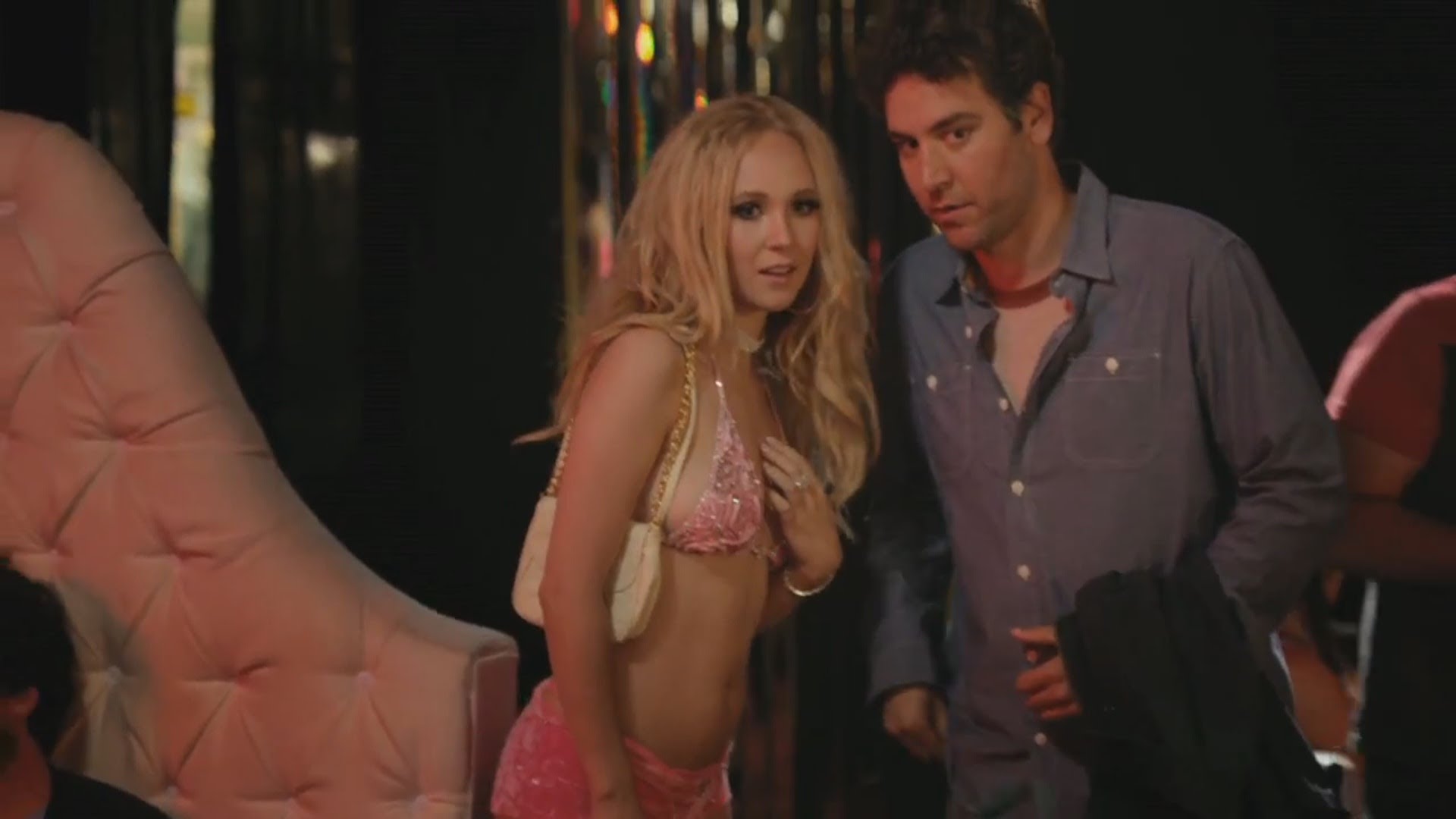
It’s sad to look at the majority of reviews that can be found online for writer/director Jill Soloway’s excellent Afternoon Delight. They all seem to have read a synopsis for the film, didn’t bother watching it, then thought it would be best to attack it for being what it exactly is not.
Yes, the film has a premise that sitcoms are made of: a bored suburban wife and mother (Kathryn Hahn) becomes entranced by a gorgeous, down-on-her-luck dancer/prostitute (Juno Temple), then invites her to come stay with her and her family until she gets back on her feet. Worlds clash, some forms of hijinks ensue, but, rest assured, the potential Pretty Woman, Part Two scenario ends there.
Afternoon Delight is a very real and rare film that sets its action forth from a premise that could have easily been silly and contrived. Instead, it becomes a fascinating and mature film about adult exploration of (the often darker sides of) sexuality. Hahn is excellent and conflicted as the main character. Her simultaneous attraction and repulsion to Temple is wholly understandable and believable.
Temple, most impressively, dives head-first into a role that could have easily been just another lazy, one-dimensional portrayal of a sex worker. From her mannerisms to her dead-eyed stare, however, Temple completely, utterly, and brilliantly envelops herself in the role of a woman who has learned to use her sexuality for survival, her sole source of self-assurance, and an ultimately destructive weapon.
Afternoon Delight is a great character study and a beautifully crafted film. Hahn and Temple’s characters both want to be something they’re not, and they both suffer and (in varying degrees) learn from eventually accepting it. The richness behind Afternoon Delight relies heavily on some very refined filmmaking and some downright excellent performances to highlight the drama and pain behind such a definitive and human realization.
2. Human Nature (2001)
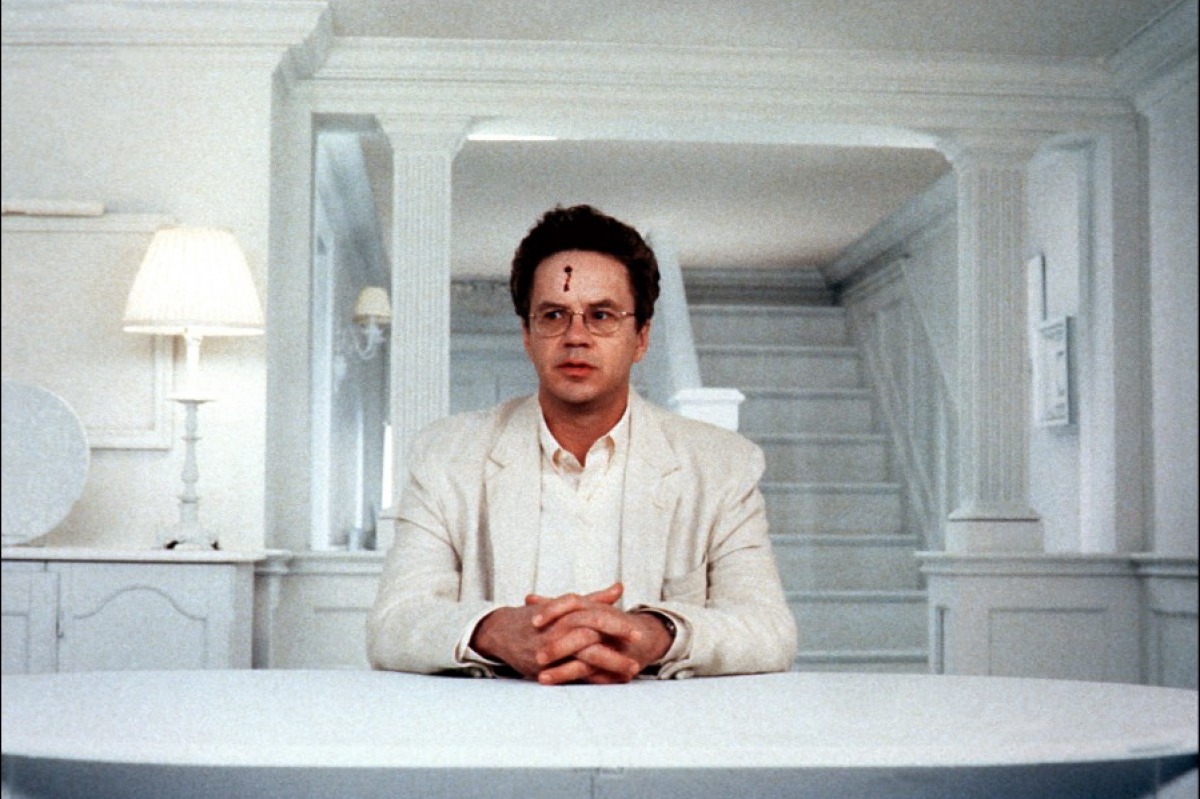
The second Charlie Kaufman script to be produced (after Being John Malkovich) and the first to be directed by Eternal Sunshine helmer Michel Gondry, Human Nature is a curiously lost existential comedy that holds up quite brilliantly next to the famed screenwriter’s best and most renowned works. Undoubtedly, this is the writer’s most cynical and strange film, which is probably the reason behind the fact that it came and went in theatres unnoticed, then essentially disappeared on video just as quietly shortly thereafter.
The endlessly-interesting Rhys Ifans plays Puff, a man who was raised in the wild and believed himself to be an ape until a dweebish and self-loathing scientist (a great under-known Tim Robbins performance) obsessed with table manners takes him out of his habitat to study and socialize him.
An equally underappreciated Patricia Arquette plays the scientist’s girlfriend, who is hiding the painful and humiliating secret of being covered in body hair. When she identifies with Ifans’ character and objects to his almost-cruel predicament, things get complicated and the darker aspects of human nature begin to take everyone over.
For fans of Kaufman, Gondry, Ifans, Robbins, or Arquette, Human Nature is a lost treasure. It’s great, absurd film that is, in many ways, the most insane and uncompromising thing Charlie Kaufman has had produced to date.
For the rest of the world, Human Nature’s pessimistic view of humanity, it’s array of stars made to be as unattractive as possible, and it’s esoteric and surrealistic sense of humor most likely (and quite sadly) won’t have much to offer. However, the fact that this film slipped through the cracks and managed to get produced at all is no small feat, not unlike the success and career of a talent as great and wildly unpredictable as it’s creator’s.
1. Ask Me Anything (2014)
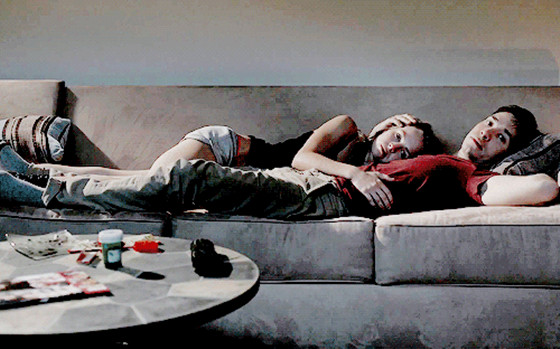
Ask Me Anything tops this list for two reasons: First, and most importantly, it is the best film on this list. Second, it’s the most fitting example of a great film that has been truly lost and underappreciated in today’s film distribution market. With no critical interest, no press, no promotional campaign, and only a severely misguided poster to represent it, Ask Me Anything has unjustly been abandoned and left to a life of obscurity on VOD.
It not only represents numerous and wonderful films (of which there are far too many to be listed) that are going by today unnoticed, it’s also, in and of itself, a highly original piece of filmmaking that warrants praise and recognition based solely on its own merits.
Adapted from his own novel, Undiscovered Gyrl, writer-director Allison Burnett’s Ask Me Anything is a film that needs to be paid close attention to, from start to finish, in order to be fully impacted by it. The film takes the great risk of fooling us into thinking it’s going in a certain direction (a wild teen sex romp about a promiscuous girl who blogs about all her exploits), then expertly uses those expectations against us to effectively tell it’s story and make it’s point.
Ask Me Anything knows it’s a movie, it plays with us by being a movie, and when it eventually reveals it’s not the movie it promised it would be, the resulting experience is all the more resonating and fulfilling. The film’s brilliant cinematic use of an unreliable narrator is as sophisticated and daring (though much more subtle) as such classics as A Clockwork Orange or Fight Club.
Featuring an outstanding cast without a single weak link (Britt Robertson, Martin Sheen, Justin Long, Christian Slater, to name just a few), Ask Me Anything is a movie that requires patience, discussion, and probably two or three viewings to fully gestate. Movies like this aren’t too common anymore, and when they are made, their fate resembles the (current) fate of this wonderful film.
Most present-day films feel like they’re made to hold half our attention, and the results are predictably half as good. Ask Me Anything demands it’s viewers’ full attention, and the pay-off is ultimately twice as good as the majority of its competition today.
Author Bio: Matt Hendricks is an independent filmmaker with several projects currently in development.